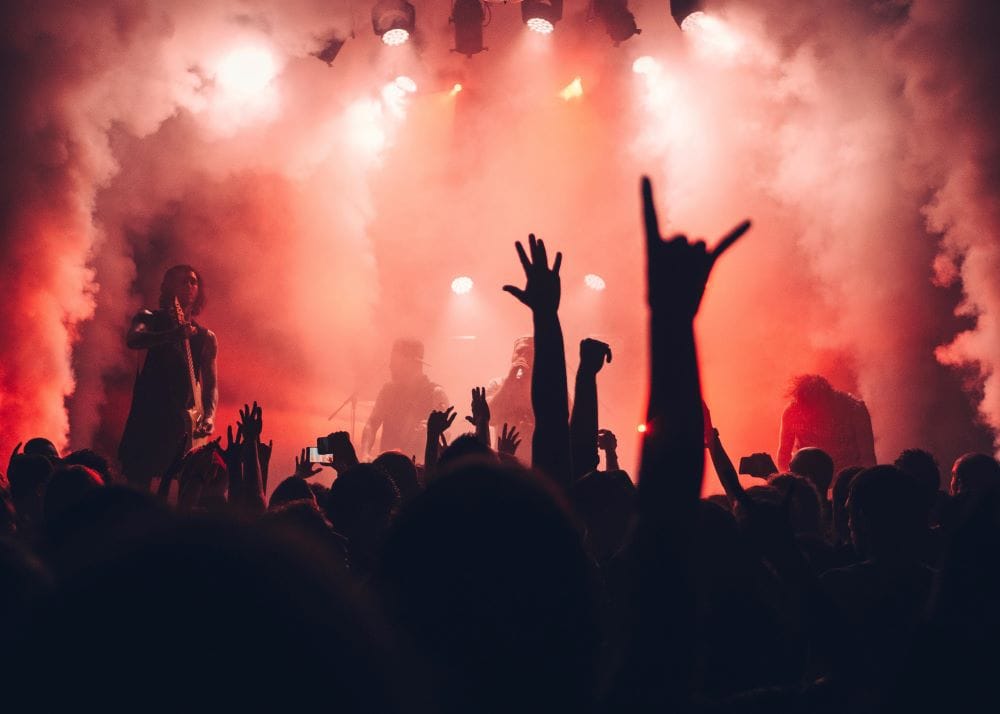
Singaporeans are no stranger to the beauty of live music, from Taylor Swift’s sold-out appearances at the National Stadium to small, indie ‘gigs’ scattered around the island to the yearly National Day celebrations where hundreds celebrate the country in a festive song and dance.
The Little Red Dot’s vibrant music and arts scene offers its citizens countless opportunities throughout the year to experience the unique thrill of a live performance. From outdoor festivals to intimate gigs, the city pulsates with the rhythm of diverse musical genres.
However, amidst the excitement, it’s crucial to remember that prolonged exposure to loud music can lead to concert ear damage. In May 2024, SingHealth Duke-NUS Academic Medical Centre published a news article related to post-concert hearing loss, stating that “The microscopic auditory hair cells in the inner ear sway when sound waves enter the ear. When the sound is very loud, the cells take more time to straighten. When the sound is too loud, the hair cells may be unable to straighten back and become irreversibly damaged.”
While we typically associate hearing loss with ageing, younger individuals may be putting themselves at risk of hearing loss due to improper ear protection during live events. Recognising the signs of post-concert ear damage early is essential in preventing long-term hearing loss – and there are also steps you can take to minimise this risk and continue enjoying your live shows without permanent damage.
Understanding Ear Damage from Concerts
Concerts, especially those with amplified sound systems, can reach dangerously high decibel levels. Prolonged exposure to such intense sound waves can overwhelm the delicate hair cells within the inner ear, leading to temporary hearing loss after a concert or even permanent damage.
The immediate impact of excessive noise exposure can manifest as muffled hearing in one ear after a concert or a persistent ear ringing after a concert. If ignored, these symptoms can progress to more severe hearing loss, affecting your ability to communicate and enjoy everyday life.
According to a recent article by HealthXchange.sg, otolaryngologists at SGH have been seeing an increase in younger Singaporeans (below age 30) facing hearing difficulties. Possible factors contributing to this range from attending concerts without adequate ear protection to listening to loud music over headphones or earphones.
Though we commonly associate hearing loss with ageing, this anecdote underscores the importance of protecting our hearing at any age, even in seemingly fun and harmless environments like concerts.
5 Common Signs of Post-Concert Ear Damage
While some symptoms may subside within a few hours or days, others may require professional attention. Here are some signs to watch out for and what actions to take if you observe them in yourself or others:
- Tinnitus: Tinnitus is a persistent ringing or buzzing in the ears that can be incredibly distracting and distressing. If you experience tinnitus after a concert, try to avoid loud noises and rest your ears. (Here’s an interesting fact: did you know that hearing aids can help with tinnitus pain relief?)
- Muffled hearing: Sounds may seem distant, unclear, or muffled, affecting your ability to understand speech and other auditory cues. In the short term, give your ears time to recover in a quiet environment.
- Ear pain or discomfort: You might experience a feeling of fullness or even pain in your ears. Avoid inserting any objects into your ears and consider using over-the-counter pain relief if necessary.
- Vertigo or dizziness: In some cases, loud noise exposure can lead to vertigo or dizziness, a feeling of spinning or imbalance. If you experience vertigo, sit or lie down in a safe place until the dizziness subsides.
- Temporary hearing loss: This may present as partial or complete hearing loss, lasting from a few hours to several days. Rest your ears in a quiet environment and avoid any further noise exposure.
Still have questions like “Will my hearing come back after a concert?” or “How long will it take for my hearing to return after a concert?” The general rule of thumb is that if any of the symptoms above persist for more than a few days or begin to worsen, it’s crucial to seek medical attention by a doctor for professional advice to assess the extent of any damage and rule out any underlying issues.
Preventive Measures for Future Concerts
Thankfully, for those wondering how to protect their hearing at a concert, there are some proactive steps you can take while attending your next event, performance, or gig:
- Concert ear plugs: Invest in a pair of high-quality ear plugs specifically designed for concerts. These will reduce sound levels without compromising sound quality.
- Take breaks: Step away from the speakers periodically to give your ears a rest. If you’re at a music festival, always take a hearing break between acts.
- Monitor sound exposure: Consider using apps or devices that measure sound levels to ensure you’re not exceeding safe limits.
- Choose your spot wisely: Stand further away from the speakers to reduce the intensity of sound waves reaching your ears.
- Limit exposure time: Consider attending shorter sets or taking breaks during longer concerts.
What to Do Next: Seeking Professional Help
Protecting your hearing is an investment in your future well-being. If you experience any signs of ear damage after a concert, don’t hesitate to seek professional help. The first step is to seek medical attention from a doctor 1st and not from audiologist.
Remember, early intervention is key. Even if the damage seems minor, it’s important to address it promptly to prevent further hearing loss. At The Hearing Solution Group, we offer comprehensive hearing tests and assessments to help you understand your hearing health.
If the damage is permanent, finding the right pair of hearing aids in Singapore can be a life-changing solution. Our team of experts can guide you through the process of selecting and fitting different hearing aids for your needs, ensuring you continue to enjoy the sounds of life.
Take charge of your hearing health today. Reach out to The Hearing Solution Group and let us help you on your journey to better hearing.

 Find Us
Find Us Call Us
Call Us
